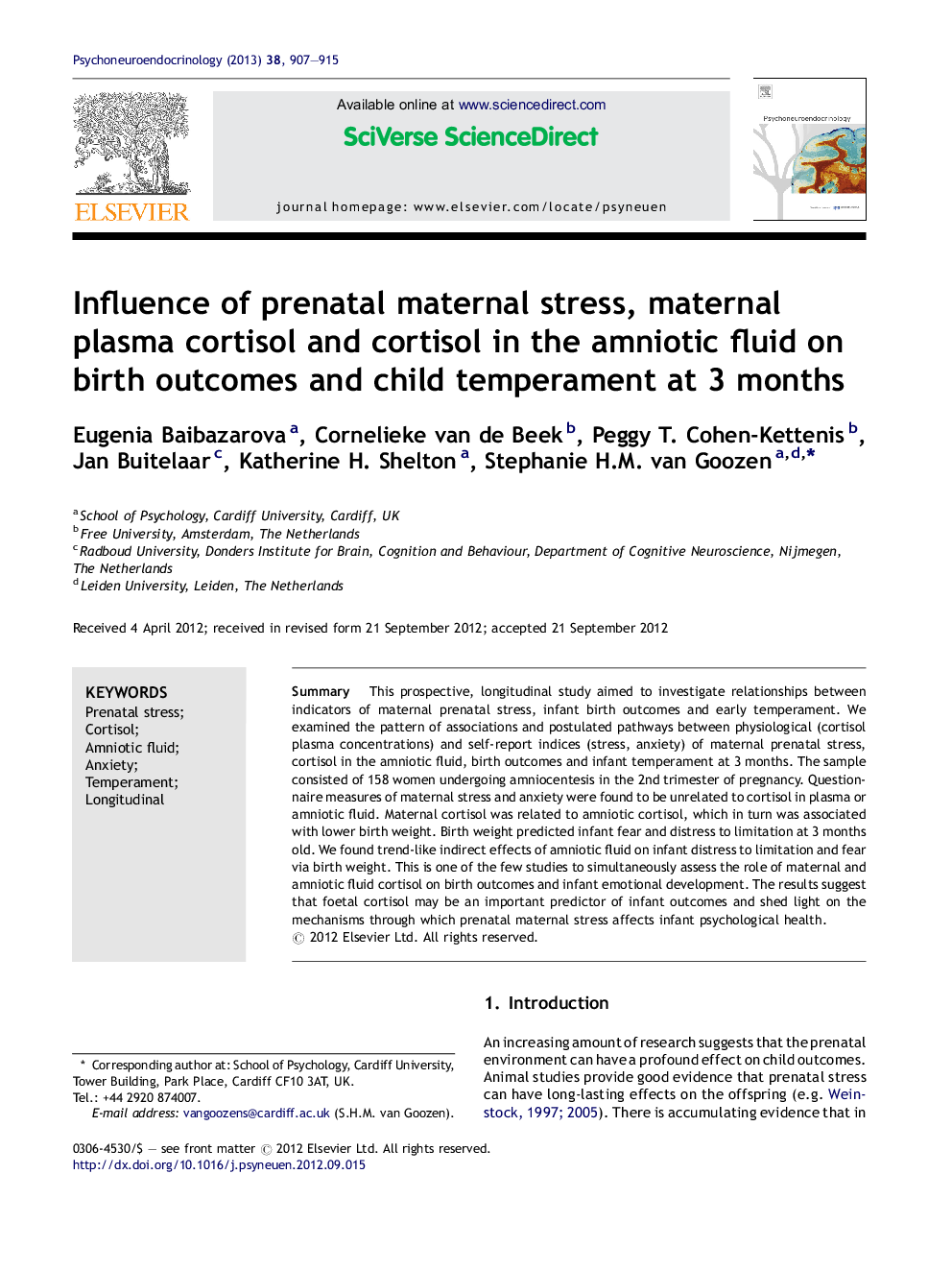| Article ID | Journal | Published Year | Pages | File Type |
|---|---|---|---|---|
| 10306244 | Psychoneuroendocrinology | 2013 | 9 Pages |
Abstract
This prospective, longitudinal study aimed to investigate relationships between indicators of maternal prenatal stress, infant birth outcomes and early temperament. We examined the pattern of associations and postulated pathways between physiological (cortisol plasma concentrations) and self-report indices (stress, anxiety) of maternal prenatal stress, cortisol in the amniotic fluid, birth outcomes and infant temperament at 3 months. The sample consisted of 158 women undergoing amniocentesis in the 2nd trimester of pregnancy. Questionnaire measures of maternal stress and anxiety were found to be unrelated to cortisol in plasma or amniotic fluid. Maternal cortisol was related to amniotic cortisol, which in turn was associated with lower birth weight. Birth weight predicted infant fear and distress to limitation at 3 months old. We found trend-like indirect effects of amniotic fluid on infant distress to limitation and fear via birth weight. This is one of the few studies to simultaneously assess the role of maternal and amniotic fluid cortisol on birth outcomes and infant emotional development. The results suggest that foetal cortisol may be an important predictor of infant outcomes and shed light on the mechanisms through which prenatal maternal stress affects infant psychological health.
Related Topics
Life Sciences
Biochemistry, Genetics and Molecular Biology
Endocrinology
Authors
Eugenia Baibazarova, Cornelieke van de Beek, Peggy T. Cohen-Kettenis, Jan Buitelaar, Katherine H. Shelton, Stephanie H.M. van Goozen,
